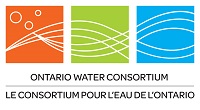Interactions within the domain of Sustainability, Environment and Resources represent Queen’s University’s strengths. Aquatic and terrestrial ecosystems change reflect the unprecedented influence of human activities on landscapes. The interaction between climate change, nutrient pollution/loading, and resource use represent a challenge in Canadian and international watersheds. Queen’s is at the forefront of investigating the impact of these and emerging stressors on freshwater and other ecosystems. Our researchers are internationally known for their discoveries, innovations, and monitoring protocols that guide public policy on issues related to climate change, built infrastructure, water pollution, alternative energy from wastewater and the protection of the Arctic environment.
RESEARCH CENTRES AND INSTITUTES
The Beaty Water Research Centre (BWRC) is an interdisciplinary centre dedicated to furthering research, education and outreach around water-related issues.
Contact: Pascale Champagne (pascale.champagne@queensu.ca) or Jyoti Kotecha (kotechaj@queenu.ca)
RESEARCH CENTRES AND INSTITUTES
Contact: Alison Rutter (ruttera@queensu.ca)
The Queen’s University Biological Station (QUBS) is one of the premier scientific field stations in Canada.
Contact: Stephen C. Lougheed (steve.lougheed@queensu.ca)
Contact: Geoff Hall (geoffrey.hall@queensu.ca), Pascale Champagne (pascale.champagne@queensu.ca)
The Cape Bounty Arctic Watershed, the most comprehensive hydrological research facility in Arctic Canada, is located on the south-central coast of Melville Island, Nunavut.
Contact: Scott Lamoureux (scott.lamoureux@queensu.ca) or Melissa Lafrenière (melissa.lafreniere@queensu.ca)
The Tay River Field Site is located near Perth, Ontario, and is a tributary of the UNESCO Heritage Rideau Canal System.
Contact: Geoff Hall (geoffrey.hall@queensu.ca), Pascale Champagne (pascale.champagne@queensu.ca)
Contact: Yves Filion (yves.filion@queensu.ca), Sarah Jane Payne (sarahjane.payne@queensu.ca)


